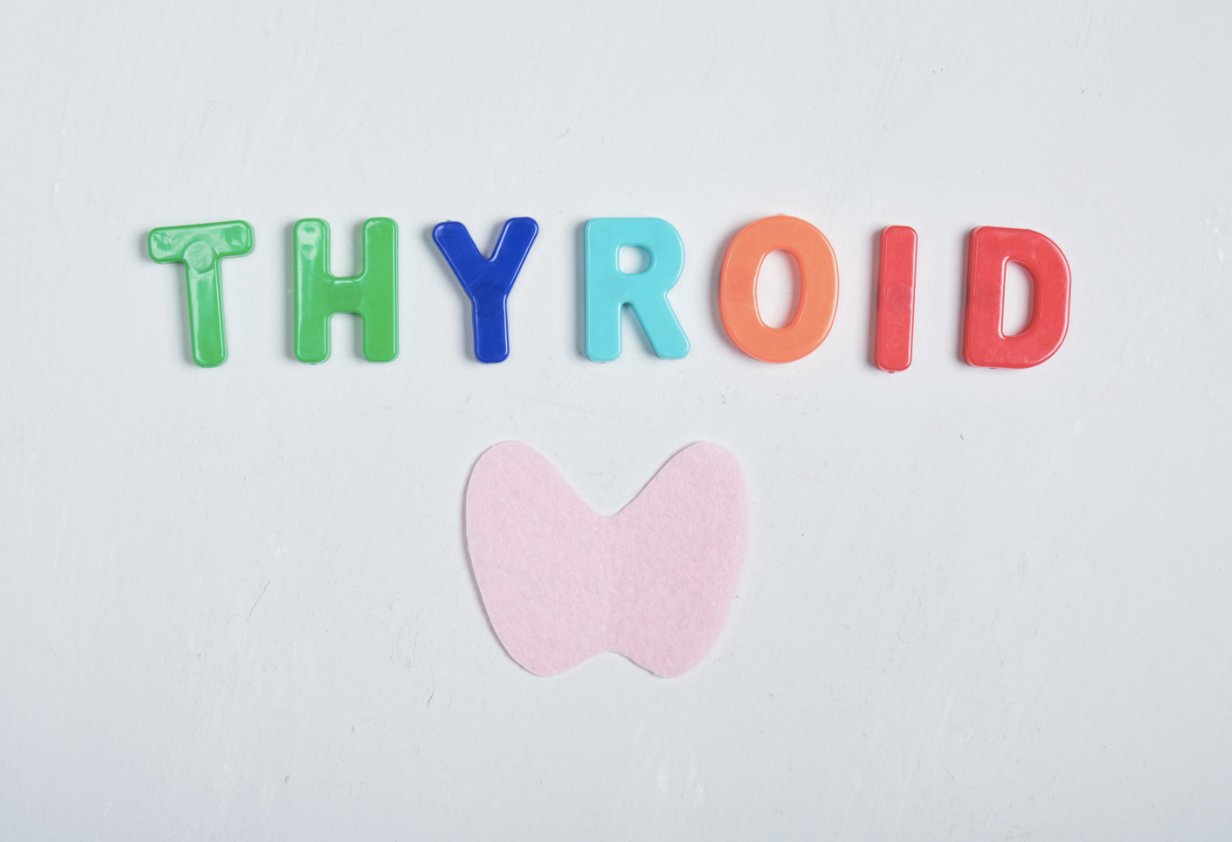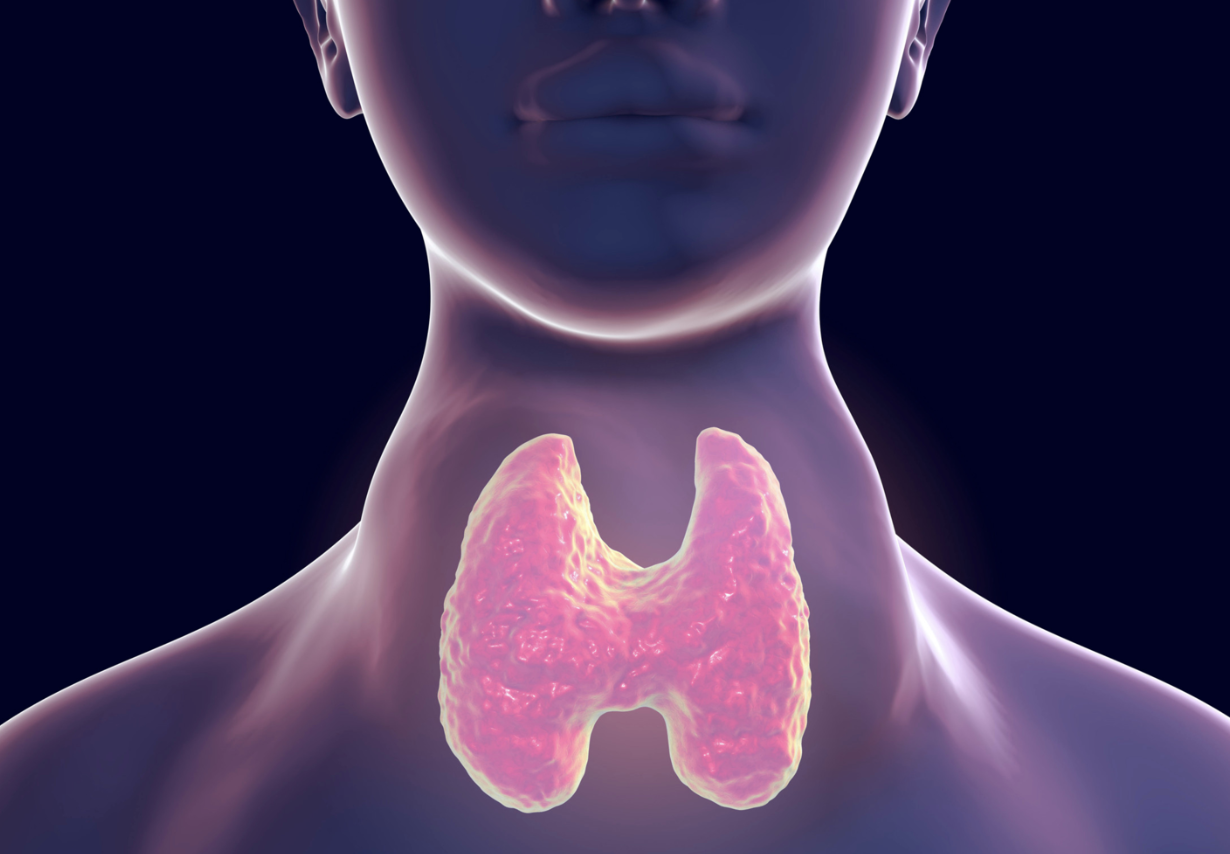Why Your Thyroid Matters: The Key to Energy and Metabolism

We all know that the human body is a marvel of complexity and precision, a finely tuned machine that relies on many systems working in harmony. Among these systems is the thyroid gland, which plays a vital and often underappreciated role in regulating energy levels and metabolism.
Situated at the base of your neck, this butterfly-shaped gland controls the release of hormones that have a far-reaching impact on your body’s overall function. In this in-depth exploration, we’ll delve into the thyroid’s critical role, its importance for maintaining a balanced metabolism, and how thyroid dysfunction can disrupt the delicate equilibrium of our energy and metabolism.
Unveiling the Thyroid Gland

So, what exactly is the thyroid gland? This small, seemingly unassuming organ measures just a couple of inches, yet its influence is profound. Nestled beneath the Adam’s apple, the thyroid plays a central role in the endocrine system, which produces, stores, and secretes hormones.
For a quick recap, hormones are chemical messengers that regulate a wide range of physiological processes, including growth and development, metabolism, immune function, mood, and the functioning of various organs and tissues. The endocrine system helps maintain homeostasis, or the body’s internal balance.
OK, back to the thyroid gland.
In essence, the thyroid gland acts as the body’s internal thermostat, constantly adjusting hormone production to meet your body’s energy needs. Its primary function is to produce and release hormones, primarily triiodothyronine (T3) and thyroxine (T4), collectively called thyroid hormones. These hormones act as messengers, orchestrating a variety of crucial bodily processes.
T4 is named after its four iodine atoms, while T3 has three. When your body needs these hormones, it gets a signal from the pituitary gland through thyroid-stimulating hormone (TSH). T4 is like a storage hormone. It doesn’t do much by itself. Instead, it’s a “waiting room” for T3, the active hormone. T4 turns into T3 when one iodine atom is removed.
T3 is the one that really gets things done. It directly impacts your metabolism, body temperature, and heart rate. T3 is crucial for keeping your body’s energy levels in balance. So, in simple terms, T4 is the precursor, and T3 is the active player, and they both help regulate your body’s functions, ensuring everything runs smoothly.
Our thyroid hormone friends are the central players in the complex symphony of your metabolism and energy levels. These hormones travel through your bloodstream to reach virtually every cell in your body, where they have several essential functions.
The most well-known role of thyroid hormones is regulating your metabolism. They control how quickly your body burns calories, impacting your energy levels and weight. When your thyroid functions optimally, your metabolism runs like a well-oiled machine, helping you maintain a healthy weight and adequate energy levels.
Thyroid hormones also influence your body temperature. When thyroid levels are imbalanced, you may notice fluctuations in how hot or cold you feel. This can be especially evident in those with hypothyroidism, a condition where the thyroid produces insufficient hormones, leading to feelings of cold intolerance.
These hormones also affect energy production at the cellular level. They help your cells convert food into energy, ensuring you have the vitality to carry out everyday activities. An underactive thyroid can lead to feelings of fatigue and sluggishness.
Thyroid hormones are crucial for proper growth and development, particularly in children. Inadequate thyroid function during childhood can lead to stunted growth and developmental delays.
And lastly, thyroid hormones play a role in maintaining the health of your heart and blood vessels. When your thyroid is overactive (hyperthyroidism), it can lead to an elevated heart rate and an increased risk of heart-related issues. In contrast, an underactive thyroid (hypothyroidism) can cause high cholesterol levels and contribute to cardiovascular problems.
The Delicate Balance of Thyroid Function

The functioning of the thyroid gland is an intricate dance of feedback loops. It starts in the hypothalamus, a part of your brain that senses the levels of thyroid hormones in your blood. When these hormone levels drop, the hypothalamus releases thyrotropin-releasing hormone (TRH), which signals the pituitary gland to produce thyroid-stimulating hormone (TSH). TSH, in turn, signals the thyroid gland to produce more thyroid hormones.
The feedback loop comes full circle once the thyroid gland releases T3 and T4 into the bloodstream. The hypothalamus and pituitary gland sense the increased hormone levels and reduce their respective signals, ultimately slowing down the thyroid’s hormone production. This finely tuned mechanism maintains a precise balance of thyroid hormones in your blood, ensuring that your metabolism and energy levels remain stable.
While the thyroid’s ability to regulate metabolism and energy is remarkable, it can also be a source of trouble when it doesn’t function properly. There are two primary disorders associated with thyroid dysfunction: hypothyroidism and hyperthyroidism.
Hypothyroidism
In cases of hypothyroidism, the typical pattern involves elevated TSH levels and low free T4 levels. This indicates that the pituitary gland works harder to stimulate the underactive thyroid to produce more hormones. Treatment for hypothyroidism usually involves thyroid hormone replacement therapy, where synthetic T4 or a combination of T3 and T4 is prescribed to restore hormone levels to normal.
People with hypothyroidism also experience:
- Fatigue: Feeling tired and lethargic, even after a full night’s sleep.
- Weight Gain: A slowed metabolism can lead to unexplained weight gain despite efforts to maintain a healthy diet and exercise routine.
- Cold Intolerance: Hypothyroidism can cause an increased sensitivity to cold temperatures.
- Dry Skin and Hair: Skin may become dehydrated, and hair may become brittle and thin.
- Depression: Thyroid hormones have a significant impact on mood. An underactive thyroid can lead to depressive symptoms.
- Constipation: A sluggish thyroid can slow down digestive processes, leading to constipation.
- Muscle Aches and Weakness: Muscle pain and weakness are common complaints in individuals with hypothyroidism.
- Memory and Concentration Problems: Thyroid hormones are essential for cognitive function. Hypothyroidism can lead to memory and concentration issues.
As stated above, hypothyroidism is often associated with unexplained weight gain. When the thyroid is underactive, your metabolic rate slows down, making it easier to gain weight even when consuming an average amount of calories. Managing weight with hypothyroidism can be challenging but not impossible:
Medication: Thyroid hormone replacement therapy can help restore a normal metabolic rate and make it easier to maintain or lose weight.
Diet: Focus on a well-balanced diet that includes whole grains, lean proteins, and plenty of fruits and vegetables. Be mindful of portion sizes and calorie intake.
Exercise: Regular physical activity is vital for managing weight with hypothyroidism. Combining cardiovascular exercises with strength training can help increase muscle mass, which, in turn, supports a higher metabolism.
Hyperthyroidism
On the opposite end of the spectrum, hyperthyroidism, or an overactive thyroid, occurs when the thyroid gland produces excess T3 and T4 hormones. The most common cause of hyperthyroidism is an autoimmune condition known as Graves’ disease.
Symptoms of hyperthyroidism can include:
- Unexplained Weight Loss: A hyperactive thyroid can cause rapid weight loss despite an increased appetite.
- Increased Heart Rate: Hyperthyroidism often leads to a rapid heart rate, palpitations, and sometimes high blood pressure.
- Heat Intolerance: Individuals with an overactive thyroid may feel excessively warm and sweat more than usual.
- Anxiety and Irritability: Excess thyroid hormones can lead to heightened anxiety and irritability.
- Tremors: Fine tremors in the hands and fingers can indicate hyperthyroidism.
- Sleep Disturbances: Difficulty falling asleep and staying asleep is common in hyperthyroidism.
- Changes in Bowel Habits: An overactive thyroid can lead to more frequent bowel movements.
For hyperthyroidism, treatment options include medication to reduce hormone production, radioactive iodine therapy to destroy thyroid cells, or, in some cases, surgery to remove a portion of the thyroid gland.
Compared to weight gain experienced with hypothyroidism, hyperthyroidism often leads to unexplained weight loss. An overactive thyroid revs up your metabolism, causing you to burn calories rapidly. However, it’s essential to achieve weight loss in a healthy and controlled manner:
Medical Treatment: Hyperthyroidism often requires medical intervention to reduce hormone production. Once hormone levels are regulated, weight may stabilize.
Diet: Focus on a balanced diet to maintain a healthy weight. It’s essential to provide your body with the nutrients it needs, especially if your metabolism is elevated.
Consult a Dietitian: A dietitian can help you develop a meal plan that supports your needs and ensures adequate nutrition.
It’s crucial to recognize that thyroid disorders often present vague symptoms that can be mistaken for other health issues. This is why it’s essential to consult a healthcare professional if you suspect thyroid dysfunction, as a simple blood test can provide valuable insights into your thyroid health.
Lifestyle Factors That Impact Thyroid Health

Maintaining a healthy thyroid is not solely dependent on medical intervention. Lifestyle choices can significantly influence your thyroid’s well-being. Here are some key considerations:
- Diet: Iodine is a critical component of thyroid hormones. Ensuring that your diet provides adequate iodine is essential for thyroid health. Foods rich in iodine include seafood, dairy products, and iodized salt. However, excessive iodine intake can also lead to thyroid dysfunction, so it’s important to strike a balance.
- Selenium: This is another mineral that supports thyroid health. It helps in the conversion of T4 to the more active T3 hormone. Good dietary sources of selenium include Brazil nuts, fish, and lean meats.
- Stress Management: Chronic stress can have a detrimental impact on thyroid function. Finding effective ways to manage stress through relaxation techniques, exercise, and mindfulness can help support your thyroid.
- Avoiding Goitrogens: Certain foods, known as goitrogens, can interfere with thyroid function by blocking the uptake of iodine. These include cruciferous vegetables like broccoli, cabbage, and cauliflower. While they’re nutritious foods, consuming them in moderation is advisable, especially if you have an underactive thyroid.
Exercise also plays a role in thyroid health. Regular physical activity is a cornerstone of a healthy lifestyle and can significantly support thyroid health. Exercise can also help increase your metabolic rate, which can be especially beneficial for those with an underactive thyroid. Even moderate-intensity aerobic activity, like brisk walking, can stimulate metabolism and improve energy levels.
Physical activity releases endorphins, which are natural mood elevators. This can be particularly valuable for individuals with hypothyroidism who may experience symptoms of depression. Maintaining a healthy weight is crucial for thyroid health. Combined with a balanced diet, exercise can help manage your weight and, in some cases, alleviate symptoms of thyroid disorders.
Thyroid Health Throughout Life

Thyroid health is not static; it can change over time due to various factors. It’s essential to be vigilant about your thyroid throughout different life stages.
Pregnancy places extra demands on the thyroid, as the developing fetus relies on the mother’s hormones for growth. Thyroid disorders can lead to complications during pregnancy, so pregnant women must undergo thyroid screening and management as needed.
As we age, the risk of thyroid dysfunction increases. Regular thyroid screenings can help detect issues early and prevent complications, especially as age-related symptoms can be mistaken for typical signs of aging.
Menopause can sometimes trigger thyroid issues, and the hormonal changes can exacerbate symptoms of thyroid dysfunction. It’s essential for women going through menopause to be vigilant about their thyroid health and consult a healthcare provider if they notice changes in their energy levels or metabolism.
Thyroid disorders are more prevalent in women than in men. Some of the key factors contributing to this gender disparity include:
As previously mentioned, pregnancy places additional demands on the thyroid. Postpartum thyroiditis is a temporary thyroid condition that can occur after birth, leading to fluctuations in thyroid hormone levels.
Many thyroid disorders, such as Hashimoto’s thyroiditis and Graves’ disease, are autoimmune. Autoimmune diseases are more common in women, making them more susceptible to thyroid issues.
Fluctuations in hormones throughout a woman’s life, including puberty, menstruation, pregnancy, and menopause, can influence thyroid function.
Conclusion

Your thyroid may not be the most prominent or talked-about organ in your body, but its influence on your overall well-being is undeniable. This small, butterfly-shaped gland regulates your metabolism, controls your body temperature, and ensures you have the energy to live your life to the fullest.
Understanding the importance of your thyroid and being vigilant about its health is essential. Don’t hesitate to consult a healthcare provider if you suspect a thyroid issue or are at risk due to family history or other factors. Thyroid disorders are manageable, and with proper treatment and lifestyle adjustments, you can enjoy a life with balanced energy levels, a healthy metabolism, and overall well-being.
If you don’t know by now, your thyroid truly matters. It’s the key to energy and metabolism, and by giving it the attention it deserves, you can ensure that it continues to function optimally, supporting your overall health and vitality.
We recommend taking the first step with the 247Labkit Thyroid Panel Test to test your thyroid levels from the comfort of your home. The test assesses the functionality of the thyroid gland and can detect the presence of thyroid-related conditions. User-friendly, it simplifies the process by allowing you to gather a small blood sample via a finger-prick, which you can then send by mail for analysis.







Comments are closed